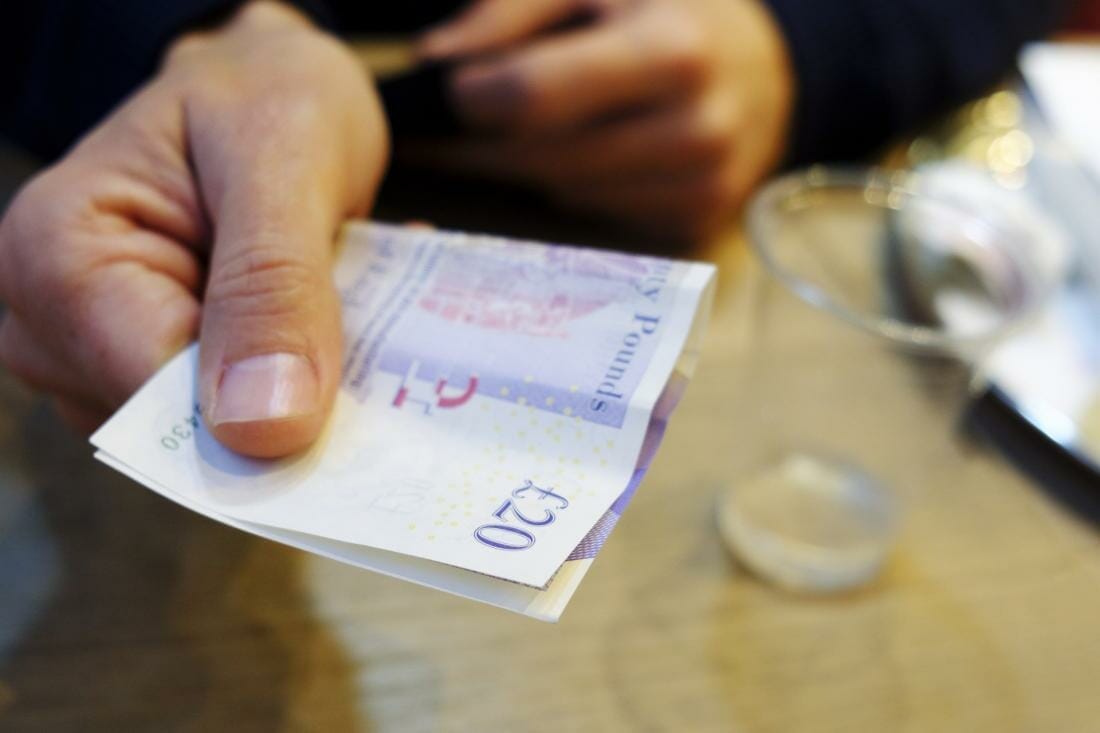With second term well under way, you might be feeling the strain of how much you spent before and during the Christmas holidays. Whilst your loan has no doubt come through by now, it might have only just brought you out of that overdraft (or possibly not) and, if you’re a first-year, you’re probably starting to understand why students always seem to have no money.
So, if you spent a little too much during the Christmas period, here are a handful of tips and tricks to help ease that sore bank account so it can see you through to Easter.
Leave the Card at Home on Nights Out
It’s so easy to overspend when you’ve had a few, and with everyone carrying around contactless cards it’s even more difficult to rein in the spending when you’re in a bar or club. Just one tap on a machine and in the blink of an eye you’ve bought three pricey cocktails, two for you and one for that person you befriended in the toilets.
To avoid overspending, take out the amount of money in cash that you’re allowed to spend and ditch the card at home. You won’t be able to spend more than you have, avoiding any horrible surprises when you check your online banking in the morning. Just make sure you don’t accidentally spend that taxi money on a kebab.
Food Shop in the Evening
The weekly food shop can feel like one of the costliest parts of being a student; how on earth did our parents cope buying food for an entire family when it feels like you’re spending so much on just yourself? Well, if you do your shop in the evening rather than the morning or daytime, you’re more likely to come across some great bargains.
Most supermarkets start heavily reducing the prices on items, such as perishable goods close to their sell-by date, by around 6pm. If you’re flexible on brand and flavours, you could stand to save a large chunk of your shop by sticking to the reduced section.
Buy Used Books
The library is a wonderful place to save on costs as you don’t have to fork out for expensive textbooks. However, sometimes the library doesn’t stock what you need, or it’s in such high demand that it’s always checked out. If you don’t care about it being new, you can pick up a cheap copy of the book from the likes of eBay, a charity shop or possibly find it for free on Google Scholar.
Alternatively, find a Facebook group for the subject you study at your University and post in there asking if any ex-students are looking to sell their copy that they no longer have any use for. If you’re lucky, some kind soul might be willing to pass it on to you for free.

Make Your Own Cleaning Products
Not having access to your parents’ cupboardful of every cleaning product under the sun can take its toll when you need to clean your accommodation. You might have a spray or two and maybe some wipes, but cleaning products can be expensive. Did you know you can make your own? There are loads of guides online explaining how to create your very own cleaning products, and most will only require very cheap products such as lemon juice and bicarbonate of soda. Additionally, it can also be a safer alternative to using toxic chemicals in a space that doesn’t have very good ventilation.
Freeze Perishable Food
The UK has a huge problem with food wastage; it’s estimated that £13 billion worth of food is thrown away each year; you definitely don’t want to be contributing to this. An awful lot of food can be frozen, from bread and meat, to veg and fish. Make better use of your freezer; keep an eye on what’s going to expire soon and, if you’re not ready to eat it, freeze it. As a tip, pre-chop your veg and freeze it, that way when you’re cooking you can just throw a handful of what you need into the pan and it will defrost whilst it cooks.
Additionally, remember that there is a big difference between ‘best before’ and ‘use by’ dates on food. Best before just means it’s at its best before the date shown, but it’s still edible after this date. Make sure you only throw food out that’s gone bad; food that’s not in its prime is still good to eat.

Buy the Cheapest Medicines
Things like paracetamol and ibuprofen can be bought for pennies when you buy a supermarket’s own brand version. The more expensive brands might give the illusion that they work better, but this is simply not true. They couldn’t sell something marketed as medicine if it didn’t do what it said on the packet. The cheap stuff has the same fundamental ingredients as the expensive stuff, so there’s really no reason to splash out on branded pills. You can save a lot of money by shopping around for the cheapest possible boxes of pain killers.
Go Veggie (at Least Some of the Time)
Meat is one of those things you probably didn’t realise was so expensive until you had to start paying for it with your own money. If you’re not ready to give up bacon for good, having vegetarian days a couple of days out of the week is still enough to seriously save on that food shop, as you won’t be buying as much meat. Not to mention you’ll be getting a lot more veg in your diet. Meat substitutes such as Quorn mince are also great, cheaper alternatives.
Make Bulk Lunches
An easy place to cut on costs is to not buy lunch every day at a shop or café. Homemade lunches are a much cheaper alternative, and most people only don’t do this, because they don’t want the hassle. But if you make a large batch of food on a Sunday and dish it out into Tupperware boxes, you can have homemade lunches for every day of the week at a much lower cost, and most likely healthier too. And if for whatever reason you don’t get to eat them all that week, they can be frozen for next week.

We hope we’ve helped give you some ideas for pinching the pennies this winter. For even more great savings, check out our range of student accommodation in Lancaster. At Student Housing Lancaster, we have an extensive range of properties to suit any budget.
















0 Comments